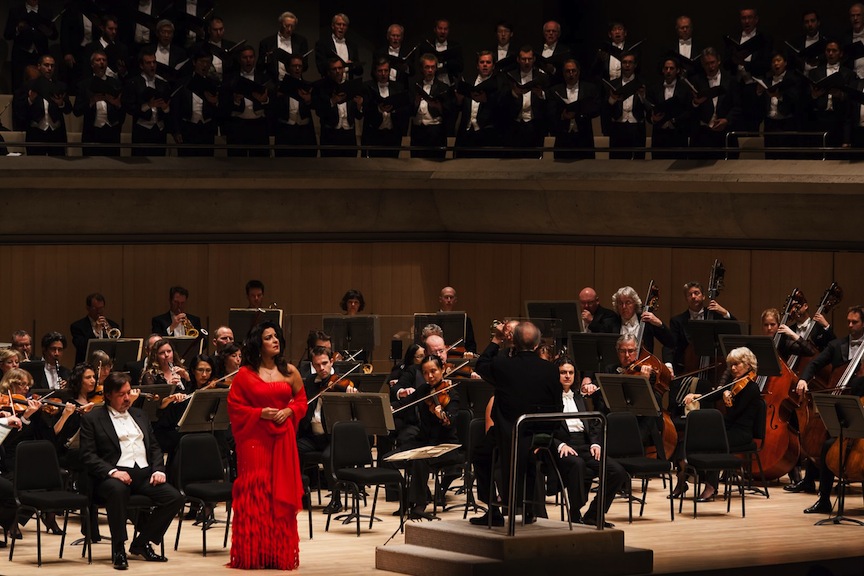
Anyone who still has lingering misgivings about the quality of our city’s flagship orchestra would have had them quashed soundly at the concert presentation of Manuel de Falla’s opera La vida breve at Roy Thomson Hall on Thursday night.
- Classical Music 101: What Does A Conductor Do? - June 17, 2019
- Classical Music 101 | What Does Period Instrument Mean? - May 6, 2019
- CLASSICAL MUSIC 101 | What Does It Mean To Be In Tune? - April 23, 2019
The Toronto Symphony Orchestra was on fire — as were its many guests, including a substantial contingent from the Toronto Mendelssohn Choir and Spanish conductor Rafael Frühbeck de Burgos.
The music of Manuel de Falla (1876-1946) is closely identified with the folk sounds of his native Spain. La vida breve, a two-act, hour-long opera he wrote in 1904, is richer in instrumental music than singing — and is like having all of Falla’s musical influences rolled into one piece.
There is a lot to listen to, and a lot for the orchestra to do as the music shifts from sensuous evocations of love to forebodings of tragedy in this very simple story of a gypsy woman who discovers that her lover is about to marry someone else. Salud, the wronged damsel, declares at the start of the opera that it is better to die than to live unhappily, making the dénouement inevitable.
Frühbeck brought in a hand-picked cast of operatic and folk professionals to perform alongside the orchestra. All were fine, but there were two big standouts.
Salud was spectacularly sung by mezzo soprano Nancy Fabiola Herrera, who not only has a huge voice but all the vocal and dramatic tools with which to captivate an audience.
Herrera was able to hold her own, even with the orchestra playing at full volume.
The other knockout performer was Flamenco dancer Núria Pomares, whose two turns on the little patch of floor to one side of the conductor’s podium were mesmerizing.
The only disappointment in La vida breve is the choral writing, which is almost laughably amateurish in spots, but the Mendelssohn Choir delivered their parts with the same verve and conviction as everyone else.
Opera in concert done at this exalted level is every bit as riveting as seeing it staged.
Frühbeck may be thin and frail as he approaches his 80th birthday, but he had a titanic command of the orchestra and the score, which he conducted from memory, seated on a little stool.
We had a foretaste of this command in the Symphony No. 8 by Ludwig van Beethoven, which opened the concert. Its presence on the programme is hard to explain, but it did give Frübeck — again conducting from memory — the opportunity to show how 60 musicians can perform a piece they’ve played once or twice too often with verve and, best of all, the sound of spontaneiety.
This was a particularly elegant reading of the Beethoven — and would have been more of a highlight on the programme if it hadn’t been for the fire-breathing opera.
There is a repeat performance on Saturday night that deserves your undivided attention. (Details here.)
John Terauds
- Classical Music 101: What Does A Conductor Do? - June 17, 2019
- Classical Music 101 | What Does Period Instrument Mean? - May 6, 2019
- CLASSICAL MUSIC 101 | What Does It Mean To Be In Tune? - April 23, 2019



